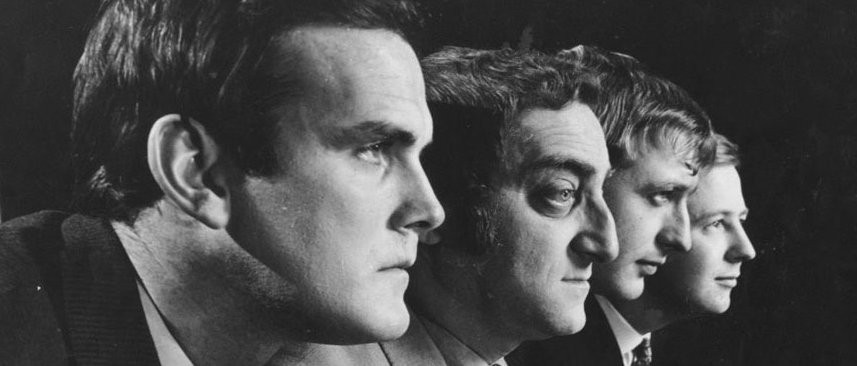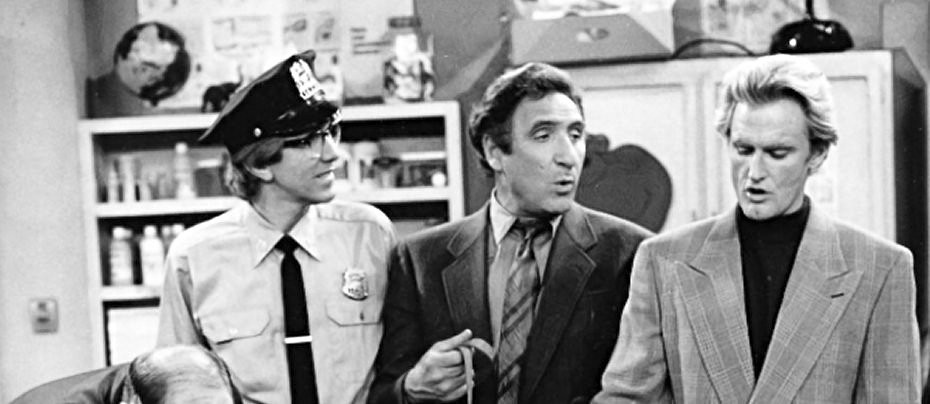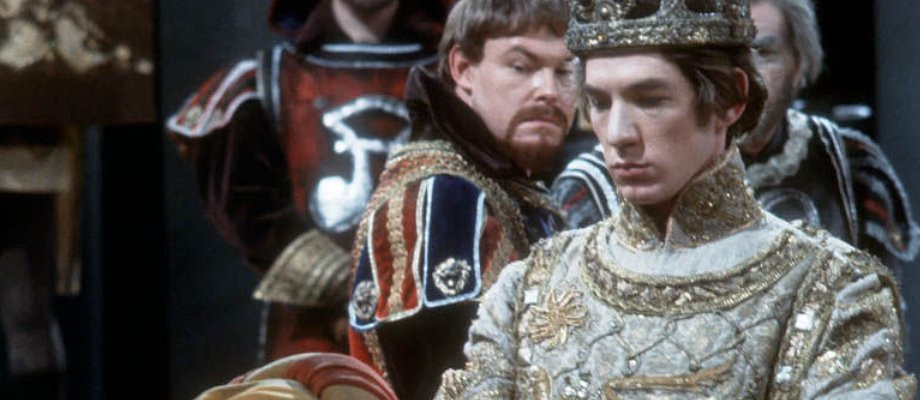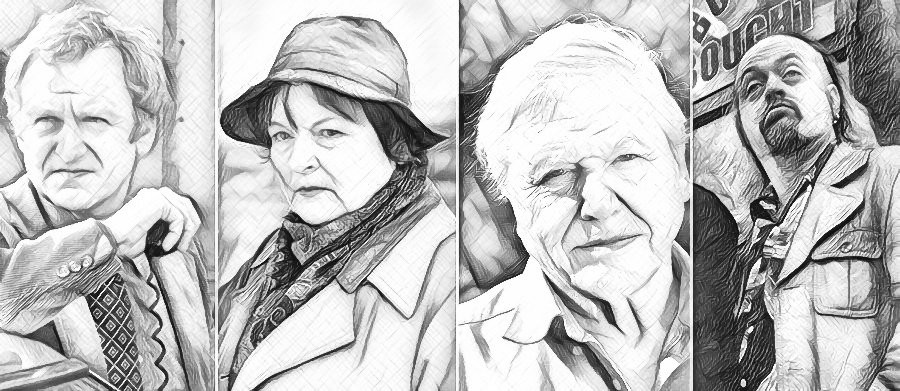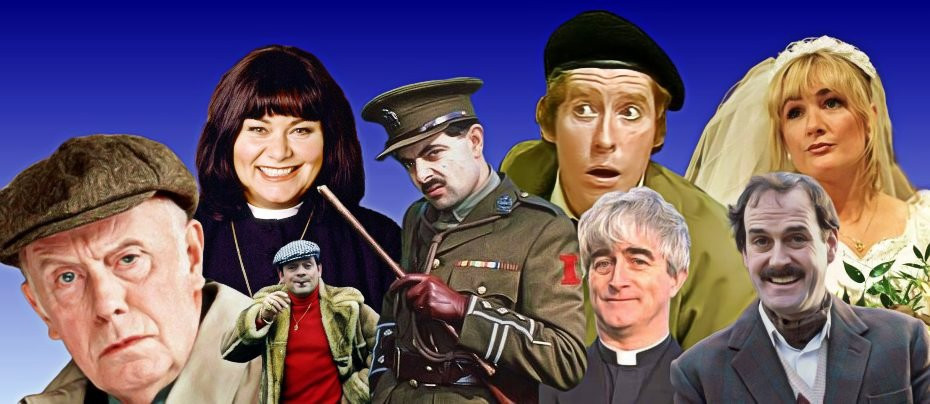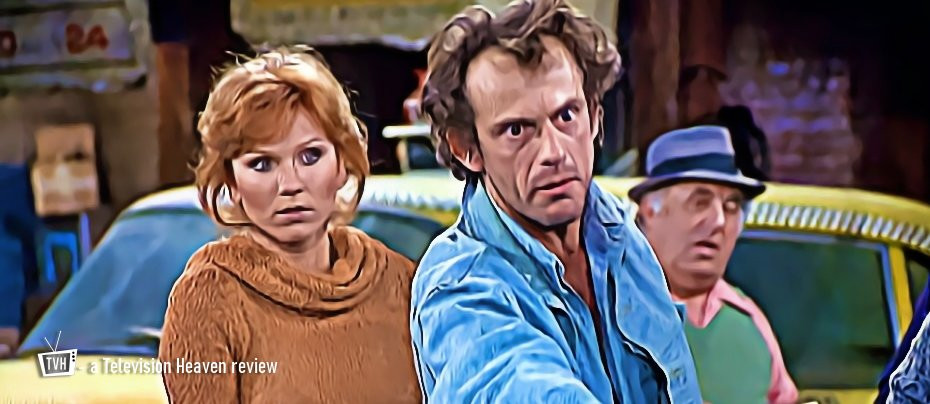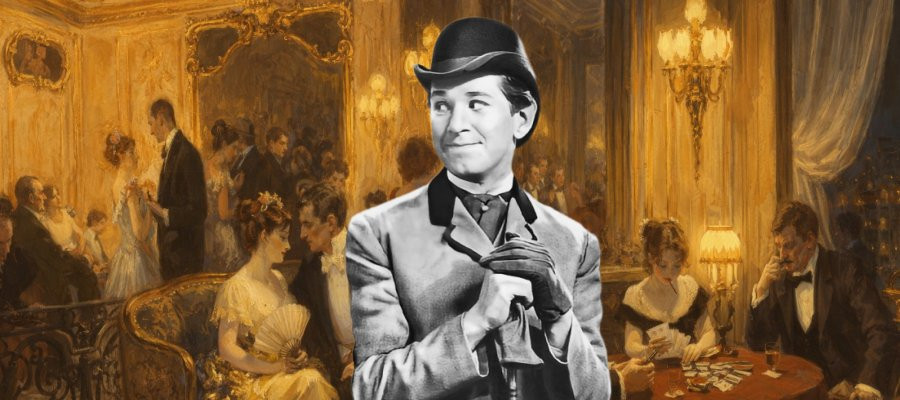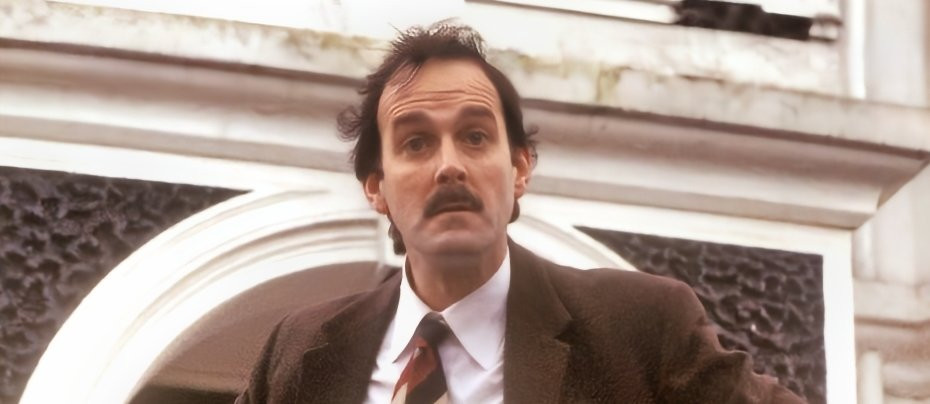
Crossing The Pond
Article by Michael Spadoni
Amanda’s
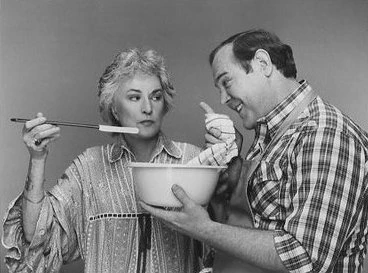
There have been several attempts to adapt the well-regarded British comedy Fawlty Towers to American tastes. One, entitled Chateau Snavley with Harvey Korman and Betty White, didn’t make it past the pilot stage. The first (of two) to hit the airwaves tried to put a twist on the format by making the lead character a woman. And it would be hard to argue Bea Arthur–in her first comedy series since the demise of Maude–wasn’t perfect casting as Amanda Cartwright, a female version of John Cleese’s Basil Fawlty. Unfortunately, Amanda’s was a no go.
Arthur’s character ran a struggling seaside resort known as 'Amanda’s by the Sea', and was not unlike Maude Findlay with her sarcastic delivery and withering quips. And for good reason: Her staff always seemed to conspire against her–including her hotel management-schooled son Marty (Fred McCarren), who longed to return to the big city. Marty’s spoiled wife Arlene (Simone Griffeth) was no help, as was the hotel’s excitable chef Earl Nash (Rick Hurst) and bellhop Aldo (former Saturday Night Live player Tony Rosato), a confused man whose foreign origins remained a mystery. Like Fawlty Towers, Amanda’s dealt with irate guests and the fractious staff. Also making life harder was banker Clifford Mundy (Keene Curtis), who stopped by–often–to threaten foreclosure on the hotel.
Americans who weren’t familiar with Fawlty Towers failed to tune in, and not even Bea Arthur’s presence could keep the series running for long. ABC produced 13 episodes, but only ten episodes aired during a four-month period in early 1983. Fortunately, Arthur would rebound in a big way two years later with The Golden Girls , a format that better suited her unique talents (and earned her another Emmy in the process). It would take more than a decade before another US Fawlty Towers attempt would air (see Payne for more details).
A Touch Of Grace
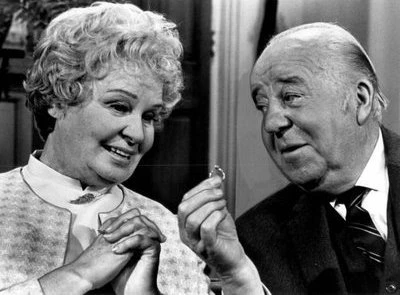
Shirley Booth won acclaim for her work as shotgun bride Lola Delaney in the Broadway and film versions of Come Back Little Sheba. But it was her title role as maid Hazel that made her a household name. Seven years after Hazel left the air, Booth tried situation comedy again in this American version of the hit UK series For the Love of Ada. Booth played Grace Simpson, a widow in her 60's who began dating fellow senior and gravedigger Herbert Morrison (J. Patrick O’Malley). This didn’t set well with Grace’s conservative daughter Myra Bradley (Marian Mercer) and her husband Walter (Warren Berlinger). Grace also lived with the pair, creating what was then known as the generation gap.
A Touch Of Grace had strong credentials; it was produced by the team behind Sanford And Son; and the pilot was directed by Carl Reiner. But it was a hard sell to launch a comedy about two 60-something leads. Going up against CBS’ formidable Saturday night sitcom block (led by All In The Family) didn’t help either. As a result, “Grace” ended after just 12 airings. In the final episode, Grace accepted Herbert’s marriage proposal.
Shirley Booth essentially retired soon after “Grace’s” cancellation. Her last role was the voice of Mrs. Santa in the 1974 animated television special The Year Without A Santa Claus. Booth was 94 years old when she died in 1992.
Coupling
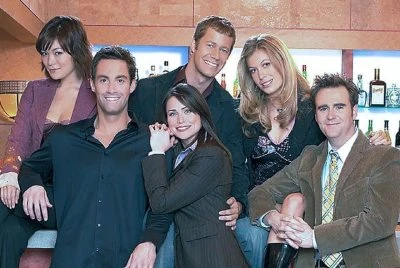
The much-praised UK version of this series was considered a knock-off of the American Friends. But the US version didn’t return the favour. It signalled the demise of NBC’s comedy and ratings dominance on its once-mighty Must See TV Thursday lineup. Creator Steven Moffat blamed the network for meddling with the format, but he had to take some blame for weak casting and mediocre scripts. It was then-NBC entertainment chief Jeff Zucker who got the American Coupling on the air, with the hopes of creating another Friends. After he cancelled the show, Zucker remarked the US Coupling, in his words, sucked.
Like the much superior British version, the US version centred on a group of six singles in their 30's–three men and three women–who were either hooked up with each other, or other people. The main characters included Steve Taylor (Jay Harrington); Patrick Maitland (Colin Ferguson); Jeff Clancy (Christopher Moynihan); Jane Honda (Lindsay Price); Susan Freeman (Rena Sofer) and Sally Harper (Sonya Walger). But its relatively racy (for American prime time) sexual content led two NBC affiliates not to air the series. And despite a massive ad campaign, Coupling was a no-go against CBS’ formidable CSI, leading NBC to pull the plug after just four episodes (it had produced a total of 11). The situation was so bad, cable network BBC America showed the British version immediately after the NBC episodes aired, to remind viewers–correctly–why the original Coupling was a far superior beast. NBC would have much better luck–both critically and commercially–when it adapted the UK version of The Office to American tastes less than two years later.
Dear John
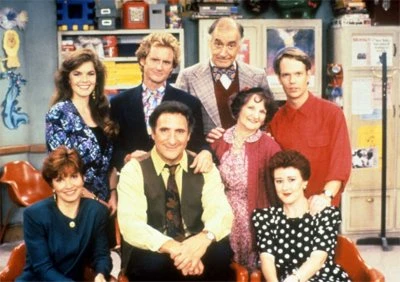
As far as UK to US transplants go, the American version of Dear John was a pretty good sitcom, thanks to its ensemble cast and decent scripts. But the series bounced around on the NBC schedule over its four-season run, all but sealing its fate.
Judd Hirsch (Taxi, et al) starred as John Lacey, a suburban New York City high school teacher whose learned in–appropriately–a Dear John letter that his wife left him and took custody of their son. John had no choice but to move into an apartment. To deal with his divorce, John joined the neighborhood One-2-One Club for singles. British woman Louise Mercer (Jane Carr) led the group with her bouncy but oversexed personality. Other members of One-2-One included divorcee Kate McCarron (Isabella Hofmann); lady’s man Kirk Morris (Jere Burns); shy tollbooth collector Ralph Drang (Harry Groener); feisty senior Bonnie Philbert (Billie Bird) and her silent boyfriend Tom (Tom Willett). John (and Hirsch) was the able and lone voice of sanity in a group of off-centre individuals.
A solid hit on NBC’s popular Thursday night schedule for its first two seasons, Dear John was shuffled to no less than four different nights between early 1990 and the summer of 1992, alienating once-faithful viewers.
In the UK, the American version was known as Dear John (USA).
Life On Mars
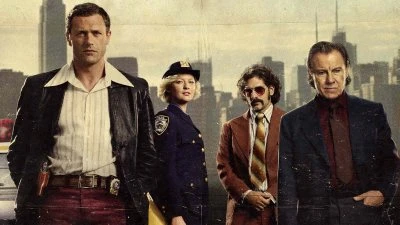
This time-travel cop drama with British origins didn’t capture the interest of US viewers and left the airwaves after one season.
In the American version, New York City Police Detective Sam Taylor (Jason O’Mara) became involved in a 2008 car accident, but woke up in the year 1973. Sam found himself in limbo (was he dreaming?) but dealt with his new situation as best as he could, bringing his 21 stcentury attitudes and crime-solving techniques to the Big Apple’s 125thpolice district, a station where racism, sexism, homophobia and brutality reigned supreme. Michael Imperioli (The Sopranos) played fellow Detective Ray Carling; Harvey Keitel was Lieutenant Gene Hunt; and Grechin Mol was co-worker Annie Norris. Lisa Bonet was cast as Maya Daniels, Sam’s love interest. Sam also worked cases from 1973 that were still unsolved in 2008; his reality intruded in visions of the future–such as the resignation of Richard Nixon in 1974, the death of rock group Nirvana’s lead singer Kurt Cobain in 1994, the 9/11 tragedy and the presidency of George W. Bush.
The US Life On Mars had a bumpy road to production. Prolific producer David E. Kelley owned the American rights, but sold them to ABC to get a final season of his critically-acclaimed drama Boston Legal. The pilot episode was rejected by the network, who ordered all the acting roles recast (except for O’Mara). Life On Mars was given a plum time slot, after Grey’s Anatomy on Thursday nights. The pilot did draw just over 15-million viewers, ranking among the top 20 shows of its week. But viewers didn’t seem to like the premise, despite good scripts and a strong cast. The network pulled Life On Mars from the schedule during the winter, and relaunched the show on Wednesday nights. It didn’t help. The decision not to renew the series for a second season did allow producers time to wrap up the plots. In the final episode, viewers learned Sam’s past and present realities were creations of an onboard computer on a spacecraft that carried Sam’s father and other astronauts on a manned mission to Mars. (Sam also learned from another time-traveller that Barack Obama won the presidency in 2008!)
Matthew Graham, who created the UK Life On Mars, may have had the final word on the American version: "Have you seen it? It beggars belief, doesn’t it?
Payne
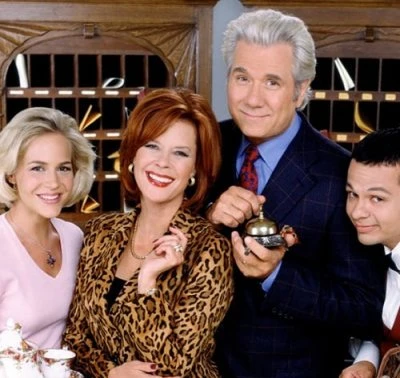
Another attempt at turning the UK’s Fawlty Towers into an American hit, this version was closer to the British original than Amanda’s. This time, character actor John Larroquette–who won multiple Emmy awards for his role as venal prosecutor Dan Fielding on the comedy Night Court–would step into John Cleese’s shoes as both star and executive producer.
Larroquette portrayed Royal Payne, the keeper of the Whispering Pines hotel on the California coast. And if ever there was a name that fit, Royal Payne was it. He was indeed a pain to both his guests and his staff. Wife Connie (JoBeth Williams) tried but failed to smooth Royal’s rough edges. The hotel’s small staff included Breeze O’Rourke (Julie Benz), an intelligent chambermaid derided by Royal as being the only virgin to step into his inn. Also on the payroll was Mohammed, or Mo (Rick Batalla), essentially Fawlty’s Manuel by way of India instead of Spain. Flo and Ethel (Ellen Albertini Dow and Dona Hardy, respectively) were two elderly Whispering Pines residents who smoked marijuana for medicinal purposes.
The pilot episode of Payne was a mixture of two Fawlty Towers episodes, but it made no difference. Airing on a weak Wednesday night timeslot, Payne was–like Amanda’s–unsuccessful. CBS aired just eight of nine produced episodes in the spring of 1999. Like Bea Arthur, Larroquette bounced back and earned accolades for his work on The Practice and its spin-off Boston Legal. Payne proved to be the final attempt to produce an American Fawlty Towers.
Reggie
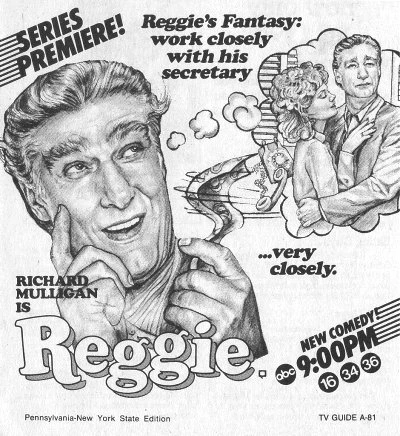
The Fall and Rise of Reginald Perrin was the basis for this UK to US transplant, which starred former Soap star Richard Mulligan as Reggie Potter, an executive at the Funtime Ice Cream Company coping with a mid-life crisis. (The American version avoided the premise of the British version, where the main character faked his own death and came back in various disguises.) On the job, Reggie dealt with an overbearing and younger boss, C.J. Wilcox (Chip Zien) and his attractive secretary Joan Reynolds (Jean Smart), whom he had the hots for–and vice-versa. On the home front, Reggie worried about his love life with wife Elizabeth (Barbara Barrie), his relationship with daughter Linda (Dianne Kay) and her annoying husband Tom Lockett (Timothy Stack). Plus, befitting his mid-life woes, Reggie lusted for the girlfriend of son Mark (Timothy Busfield). And he confided all this to Monty, a stuffed toy fox wearing an English hunting outfit!
Mulligan was at his slapstick best, but the whole premise turned off viewers–and it was no surprise ABC aired this comedy in the waning days of summer, where it could do the least damage to the network’s schedule. Fortunately for Mulligan, he would enjoy sitcom success in 1988 with the Golden Girls spinoff, Empty Nest.
Stand by Your Man
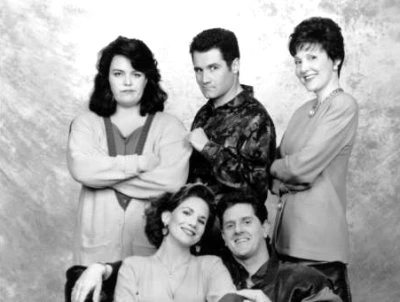
Based on the British hit Birds of a Feather , it was notable for giving Melissa Gilbert her first series since the demise of Little House on the Prairie and the first-ever sitcom lead for then-rising comic Rosie O’Donnell. The premise was similar to the UK version: Sisters Rochelle Dumphy (Gilbert) and Lorraine Popowski (O’Donnell) lived together in Rochelle’s New Jersey home while their husbands were doing time behind bars for robbery. (Sam McMurray played Rochelle’s husband Roger and Rick Hall was Lorraine’s hubby Artie; both were seen when their wives visited them in prison.) Even though they were sisters, the two women were different as night and day: Rochelle was sensible, sober and realistic. Lorraine was loud, pushy and rather crass. It was yet another of the Fox network’s self-proclaimed edgy comedies in the style of Married...With Children and others. But Stand By Your Man was not a hit, and was quickly yanked off the air.
The show’s title was based on the famous 1968 Tammy Wynette song, but the tune was never used, even during the opening or closing credits.
Too Close For Comfort/The Ted Knight Show
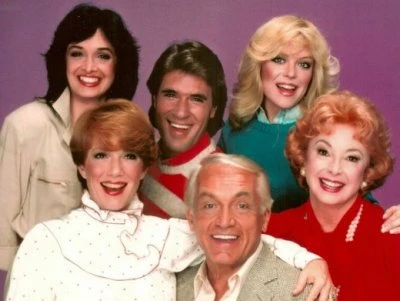
Based on the UK’s Keep It In The Family , this domestic comedy was a success for star Ted Knight, who won accolades and TV immortality as buffoonish news announcer Ted Baxter on The Mary Tyler Moore Show.
Knight played Henry Rush, a cartoonist who drew the popular comic strip Cosmic Cow. He and wife Muriel (Nancy Dussault), a freelance photographer, lived in a two-family San Francisco home. The couple had a pair of grown daughters. Older and more responsible Jackie (Deborah Van Valkenburgh) was a bank employee; younger daughter Sara (Lydia Cornell) an attractive college student. Jackie and Sara moved into the home’s downstairs apartment after the previous tenant (a transvestite) died. Conservative Henry was always worried about what his daughters were doing; an ABC news release on the series described his character as protective to a hilarious fault, keeps a fitful ear to the floor, jumping at every sound and agonizing over every silence. During the show’s first season, Henry found a foil in Sara’s off-centre friend Monroe Ficus (Jim J. Bullock), whose interactions with Henry provided comic relief.
Thanks to a plum timeslot (behind another UK to US transplant, Three’s Company), Too Close For Comfort landed among the top series on television. In the show’s second season, Muriel became pregnant and gave birth to a son, Andrew. But for the show’s third year, ABC moved the series to Thursday nights, where it withered against CBS’ detective drama Simon & Simon. and was cancelled.
But it wasn’t the end. Starting in 1984, new episodes were produced for sale to local stations, and Too Close For Comfort became a hit in syndication. In late 1985, the show received a title change and a modified format. In The Ted Knight Show, Henry, Muriel and Andrew moved to a new home in California’s Marin County (outside San Francisco). Henry became editor and part-owner of the Marin Bugler newspaper, where he sparred with co-owner Hope Stinson (Pat Carroll). Muriel worked as a photographer for the paper, and Monroe was a rookie reporter. (Daughters Jackie and Sara never appeared). Monroe also found a love interest in the Rushes’ maid Lisa Flores (Lisa Antille).
Behind the scenes, all was not well for Ted Knight. He was diagnosed with cancer soon after The Mary Tyler Moore Show ended, and had successfully undergone treatment. But in 1985, Knight learned he had colon cancer, which spread to his bladder and lower tract. On August 26th, 1986, the 62-year-old Emmy-winning actor died from surgical complications. Knight’s death ended production of the series for good.
Viva Laughlin
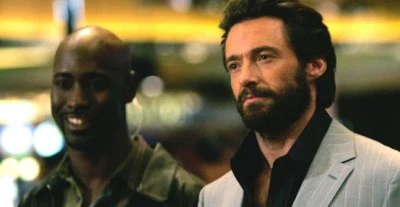
Adapted from the BBC serial Blackpool, this musical-dramedy was overseen by the UK series’ producers. But it was an embarrassment on all levels.
Hugh Jackman (also an executive producer) portrayed Nicky Fontana, the owner of a hotel and casino in Laughlin, Nevada (a gaming town along the Colorado River about 90 minutes south of Las Vegas). He sparred with rival Ripley Holden (Lloyd Owen) and found himself in the middle of a murder investigation in the show’s pilot.
Like Blackpool, Viva Laughlin mixed comedy and drama with musical numbers–a trick that was child’s play for Jackman, a Broadway and Tony Award veteran. But critics likened the end result to Steven Bochco’s much-maligned Cop Rock. One difference: While Cop Rock’s story and plots were better than its musical interludes, Laughlin couldn’t even get the drama basics right–and the bursts into song made things worse, especially when performed by actors who had little aptitude for music.
CBS bet big on Viva Laughlin ; it ordered 13 episodes, gave it heavy promotion during its Tony Awards telecast, and premiered the first episode after high-rated crime drama CSI. But the pilot failed to lure viewers, and the second episode (airing on Sunday nights after 60 Minutes) was a ratings disaster. CBS quickly yanked Viva Laughlin and replaced it with CSI repeats until it could air the season premiere of the reality series The Amazing Race . Even in Jackman’s home country of Australia, the Nine Network pulled Viva Laughlin after just one airing. It would take two years before Glee showed everyone how to pull off comedy, drama and music in a satisfying way. In Vegas slang, Viva Laughlin simply crapped out.
You Again?
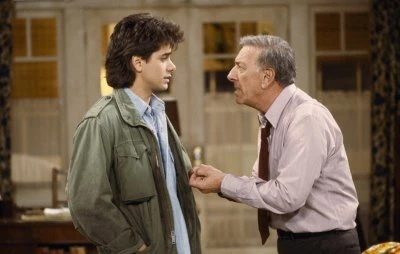
Jack Klugman and John Stamos starred in this American version of Home to Roost. Klugman played Henry Willows, a supermarket manager still angry over his decade-old divorce but settling into a quiet and peaceful life, while making no effort to keep in touch with his son Matt (Stamos). That is, until the day 17-year-old Matt landed on Henry’s doorstep, asking for a place to live. The differences between father and son were striking: Henry was conservative and set in his ways; Matt was a girl-loving teen on the edge of juvenile delinquency. Commenting on the goings-on between dad and son was Henry’s sardonic British maid Enid Tompkins. (Actress Elizabeth Bennett, who played Enid, was also portraying the same character on the UK Home to Roost–requiring her to fly between London and Hollywood to fulfill both commitments! It had to be a TV first.)
You Again? did well enough as a mid-season replacement to earn renewal, but NBC moved the series to several time slots, and viewers didn’t follow. It never made it to a second full season. Ironically, UK viewers would not get to see the American version of Home to Roost until ten years after You Again? was cancelled.
Published on May 19th, 2019. Written by Mike Spadoni (2012) for Television Heaven.



